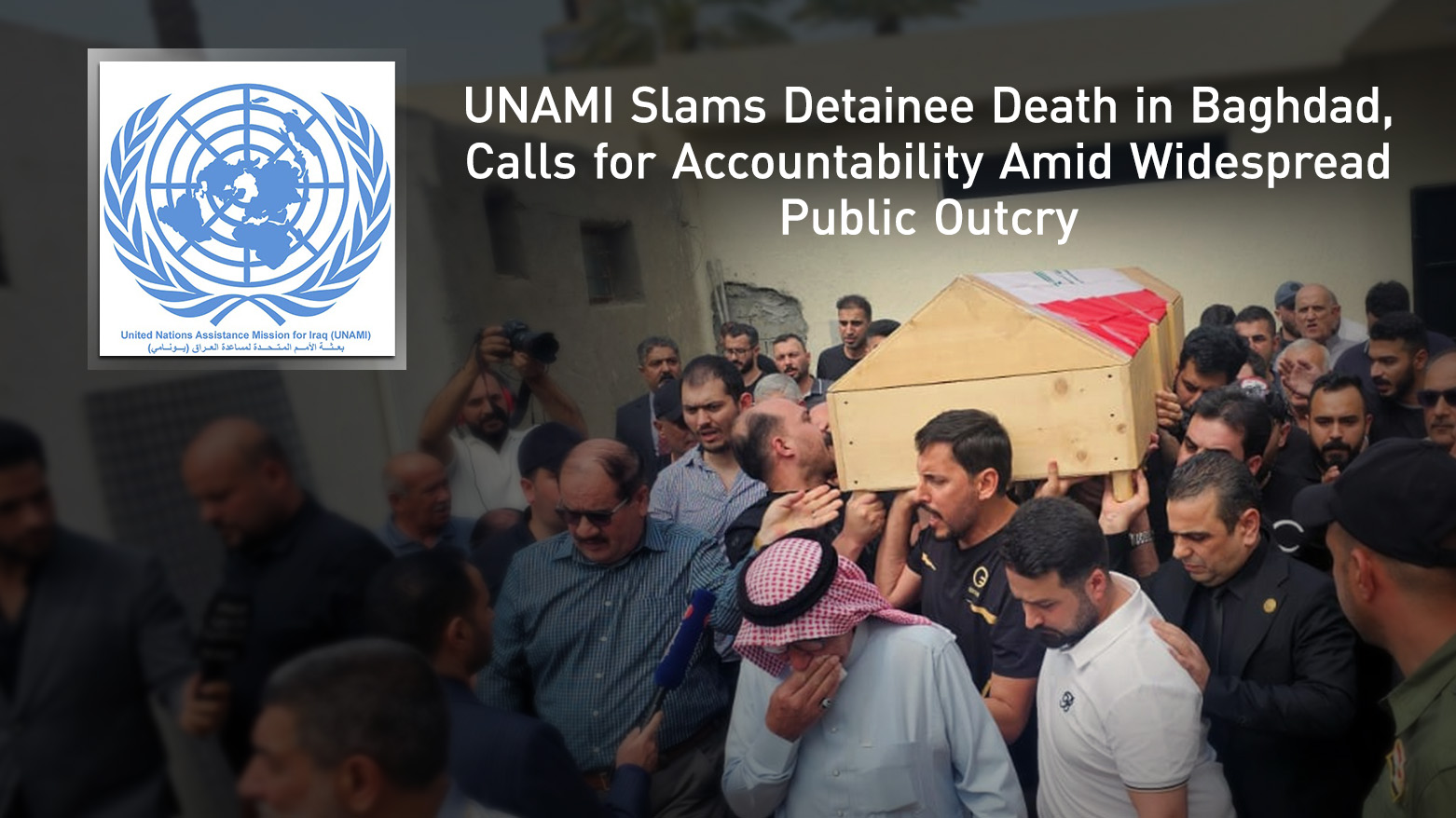UNAMI Slams Detainee Death in Baghdad, Calls for Accountability Amid Widespread Public Outcry
UNAMI confirmed it is closely monitoring the case and emphasized that any investigation must lead to justice for the victim and enforce safeguards against recurrence.

ERBIL (Kurdistan24) – The United Nations Assistance Mission for Iraq (UNAMI) on Monday voiced deep concern over the death of an Iraqi national in custody, calling for a fair, transparent, and independent investigation to ensure accountability and prevent further human rights violations. The statement came after the death of Engineer Bashir Khalid, who passed away on April 7 following his detention in Baghdad under murky circumstances.
On Tuesday, UNAMI confirmed it is closely monitoring the case and emphasized that any investigation must lead to justice for the victim and enforce safeguards against recurrence. The mission's call comes as public anger mounts across Iraq, with multiple political figures, syndicates, and human rights groups demanding justice in what is increasingly viewed as a case of torture and abuse under detention.
UNAMI statement on the death of an Iraqi in detention in Baghdad
— UNAMI (@UNIraq) April 8, 2025
Baghdad, 8 April 2025 - The United Nations Assistance Mission for Iraq (UNAMI) is following closely the case of an Iraqi national who died in unclear circumstances after being detained in Baghdad.
The Mission is… pic.twitter.com/Behw0KiMvr
Khalid, a civil engineer, was reportedly arrested on March 28 following a dispute with a senior officer in the Federal Police. Initially held at the Hutayn Police Station, he was later transferred to the Al-Jaifir Central Police Station and eventually to Al-Yarmouk Hospital, where he died from injuries said to result from violent beatings.
According to MP Husein Arab and Khalid’s family, the 10-day detention included episodes of "brutal torture." A security source reported that Khalid had fallen into a coma following a violent encounter with a senior officer and his sons. The Ministry of Interior initially attributed the fatal injuries to a fight with other detainees and denied direct involvement by police officers, though it acknowledged a formal investigation had begun.
Mounting pressure from the public and Iraq’s civil institutions has led to widespread scrutiny. Speaker of Parliament Mahmoud Al-Mashhadani has commissioned a special investigative committee, while the Iraqi Engineers Syndicate denounced Khalid’s death as a “blatant assault on the dignity of the Iraqi citizen.” The Syndicate and several MPs have demanded the case be transferred from the Interior Ministry to the judiciary to ensure impartiality.
In a rare unified stance, members of Iraq’s Human Rights Committee and Parliament have condemned the incident and summoned top security officials for questioning. Meanwhile, the Ministry of Interior has taken action against several officers and detention staff, confirming legal steps are underway against those accused of abuse of power and negligence.
The tragedy has drawn comparisons to other high-profile cases of abuse and is seen as a test of Iraq’s willingness to uphold human rights within its justice system. With both national and international voices now calling for accountability, the spotlight remains on Baghdad’s handling of the case—and on whether meaningful reform will follow.
